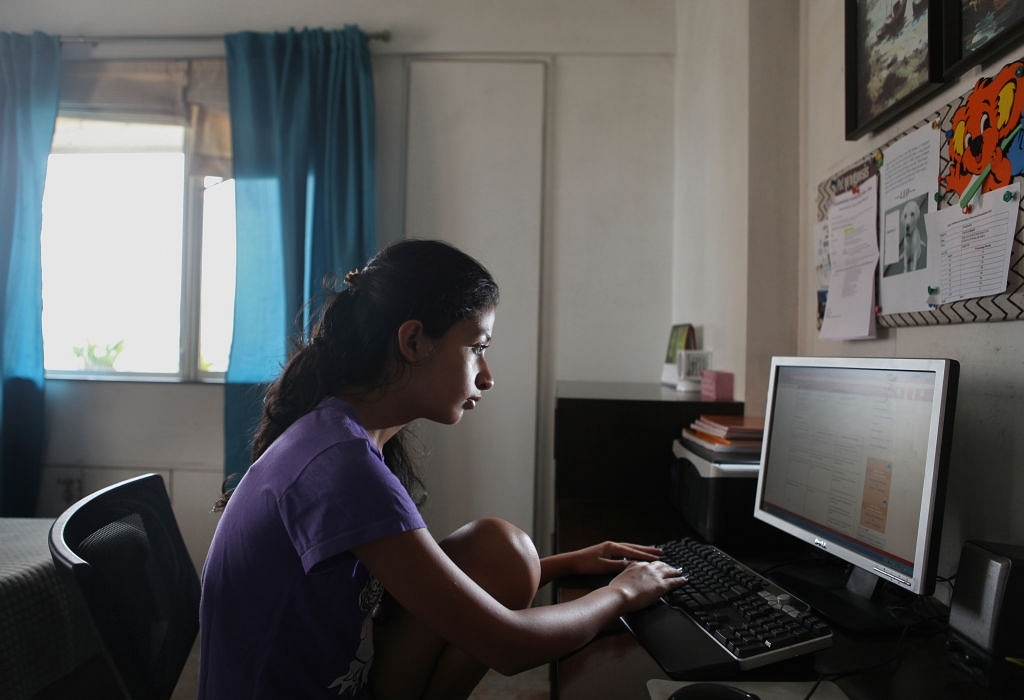Economy
What Are Ed-Tech Startups Expecting From The Budget?
- At a time when technology is promising to bring imagination into reality in the education sector, what are the industry’s expectations from the Budget?

Vanya Bisht using the internet on an LCD desktop. (Sattish Bate/Hindustan Times via Getty Images)
By Shridhar N Upadhye
As we do every year, the country will be looking forward to the Union budget with hope and curiosity. Make no mistake, it would be a challenge for the Union government to match external as well as internal expectations.
There have been many bold initiatives and some major economic reforms launched by the Modi government in the last couple of years, ranging from demonetisation and implementation of the goods and services tax (GST) to Make in India, Digital India and Skill India. However, to see the efficacy of these ambitious initiatives, there is a need for effective implementation by the government, supported by proper fund allocation.
If we go over the year, there has been tremendous growth potential in the education technology (ed-tech) startup sector – especially in the online education space for the K12 segment.
Among startups, some funding was dominated by ed-tech companies this year, catering to the school and university segment, or targeted at students studying for competitive examinations. Going forward, virtual learning, online education and personalisation will be key in widening the ed-tech market.
Emerging technological trends such as big data, analytics, digital marketing and product development are rapidly transforming how organisations function.
As predicted by the search giant Google and consultancy firm KPMG in a recent market research report, the online education market is expected to grow to $1.96 billion over five years, driven by increased user adoption.
- Online primary and secondary supplemental education will be driven by the increased acceptance of the online channel among the target consumers and increased internet penetration in tier-two cities and beyond.
- Test preparation will be the fastest-growing category in online education for the next five years. This growth will be an outcome of high adoption of the online channel among students.
- Online higher education will also witness considerable growth and continue to aid in distance learning programmes.
Aspiring entrepreneurs and startups are keen to know about support and new initiatives from the budget in this area. Expectation from Finance Minister Arun Jaitley are many. Here are some of the important ones for the ed-tech sector.
- Expect the government to announce incentives to push for virtual learning – to actualise “quality education for all”
- Provision for the corporate social responsibility fund (2 per cent of profit) to be utilised in the education sector by private organisations
- To create a fund for government schools to get online test preparation for Joint Entrance Examination/National Eligibility Cum Entrance Test so as to ensure affordable and quality online coaching in India and across all sections of society
- Stress-free tax system for online education and training organisations
- Education as a role is directly linked to social cause and helps in nation building and hence such benefits are justified
- Expenditure on startups, education and skill building by parents should have more income tax benefits through exemptions
As we await the presentation of the new budget, it’s fair to say it would be a crucial year for India and the domestic startup industry. There are high expectations. Can the government deliver?
Shridhar N Upadhye is CBO, iScholar Education.
Support Swarajya's 50 Ground Reports Project & Sponsor A Story
Every general election Swarajya does a 50 ground reports project.
Aimed only at serious readers and those who appreciate the nuances of political undercurrents, the project provides a sense of India's electoral landscape. As you know, these reports are produced after considerable investment of travel, time and effort on the ground.
This time too we've kicked off the project in style and have covered over 30 constituencies already. If you're someone who appreciates such work and have enjoyed our coverage please consider sponsoring a ground report for just Rs 2999 to Rs 19,999 - it goes a long way in helping us produce more quality reportage.
You can also back this project by becoming a subscriber for as little as Rs 999 - so do click on this links and choose a plan that suits you and back us.
Click below to contribute.
Latest